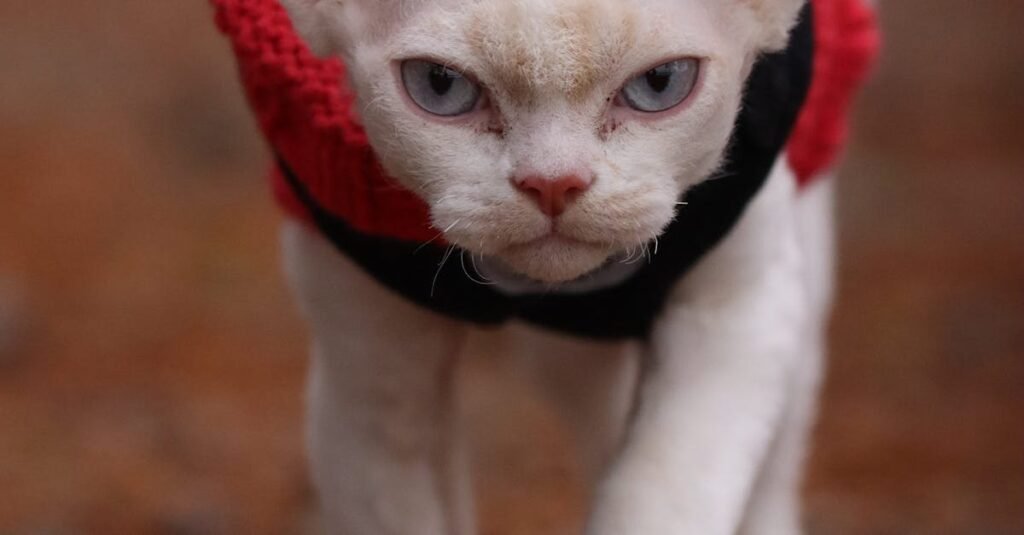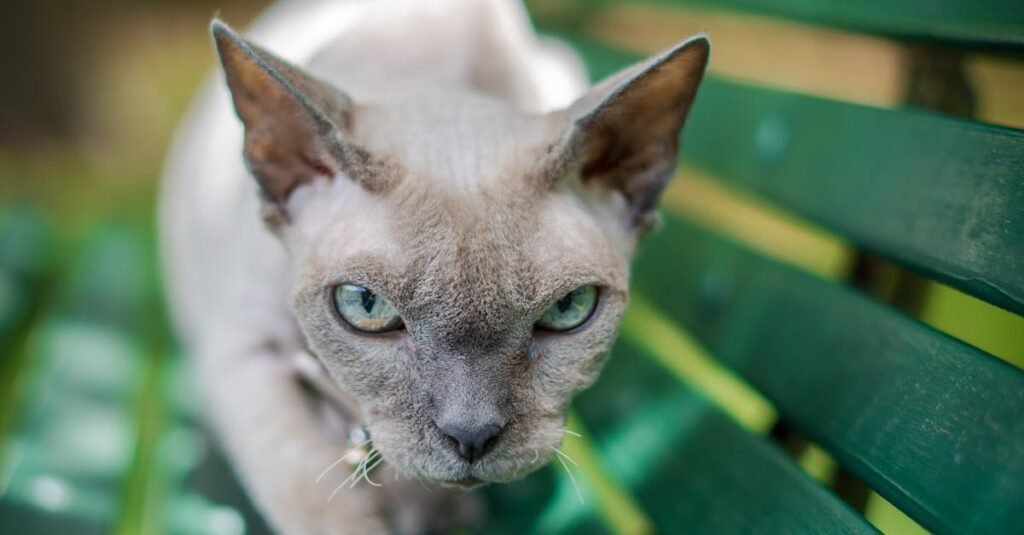Devon Rex Cat Breed
The Devon Rex is a lively affectionate and charming cat breed famous for its big ears, soft curly coat and playful personality. Often nicknamed the “pixie cat” it’s loved for its quirky looks, people-loving nature and endless energy.
1. HISTORY OF THE DEVON REX
The Devon Rex first appeared in Devon England in 1960 when a kitten with a naturally curly coat was born in a stray cat’s litter. This kitten’s unique fur came from a rare genetic mutation completely unrelated to the Cornish Rex. Breeders carefully developed the line and by the 1970s the Devon Rex was recognized by cat registries around the world. Today it’s treasured as both a distinctive show cat and a devoted family companion.
2. APPEARANCE
This is a small-to-medium breed with a slender yet athletic frame typically weighing 6 to 9 pounds. The Devon Rex is instantly recognizable for its large low-set ears, short muzzle and strikingly big eyes that give it a cheeky elf-like expression.
Its coat is short, fine and soft to the touch with natural waves or loose curls that lie close to the skin. Whiskers and eyebrows are often crinkled or short. They come in almost every possible color and pattern from solids to tabbies, bicolors and pointed variations.
3. Personality and Temperament
If you want a cat that’s always involved in your day the Devon Rex is it. They are:
Affectionate and people-focused — They’ll shadow you from room to room and curl up in your lap at any opportunity.
Playful and kitten-like — They keep their youthful energy well into adulthood and love games, climbing and exploring.
Clever and curious — They can learn tricks, play fetch and figure out how to open cupboards if you’re not careful.
They usually get along with children, other cats and even friendly dogs but they do best in homes where someone is around often.

4. Care and Grooming
The Devon Rex’s coat needs very little grooming — in fact too much brushing can damage their delicate waves. A light comb-through once a week is enough.
Because their fur is thin some Devons can develop slightly oily skin so the occasional gentle bath may be needed. Their oversized ears can collect wax faster than other breeds so regular ear cleaning is important.
They’re high-energy cats so they’ll thrive with climbing posts, puzzle toys and interactive play sessions every day.
5. Health Considerations
While generally healthy the Devon Rex can be prone to a few breed-specific issues:
Hypertrophic Cardiomyopathy (HCM) — A heart condition found in some cats.
Patellar Luxation — Kneecap movement problems that may affect mobility.
Hereditary Myopathy — A rare muscle disorder.
Skin sensitivity — Due to their fine coat.
A good diet, yearly vet visits and plenty of exercise will help keep them in top condition.
6. DEVON REX as a Family Pet
These cats are ideal for households that can give them lots of attention and playtime. They adore being part of family life and are happiest when they can interact with their humans regularly.
They adapt well to living with other pets and older children and while they’re not prone to destructive behavior they will get into mischief if they’re bored. Enriching their environment with climbing shelves, toys and scratching posts keeps them happy indoors.

7. Is the DEVON REX RIGHT for You?
If you’re after a cat that’s equal parts loving lap companion and energetic playmate the Devon Rex could be a perfect fit. They suit owners who enjoy a cat that’s always nearby ready to play or snuggle.
However they’re not the best choice if you’re away from home for long stretches as they thrive on companionship. In the right home a Devon Rex will bring years of fun affection and laughter.

